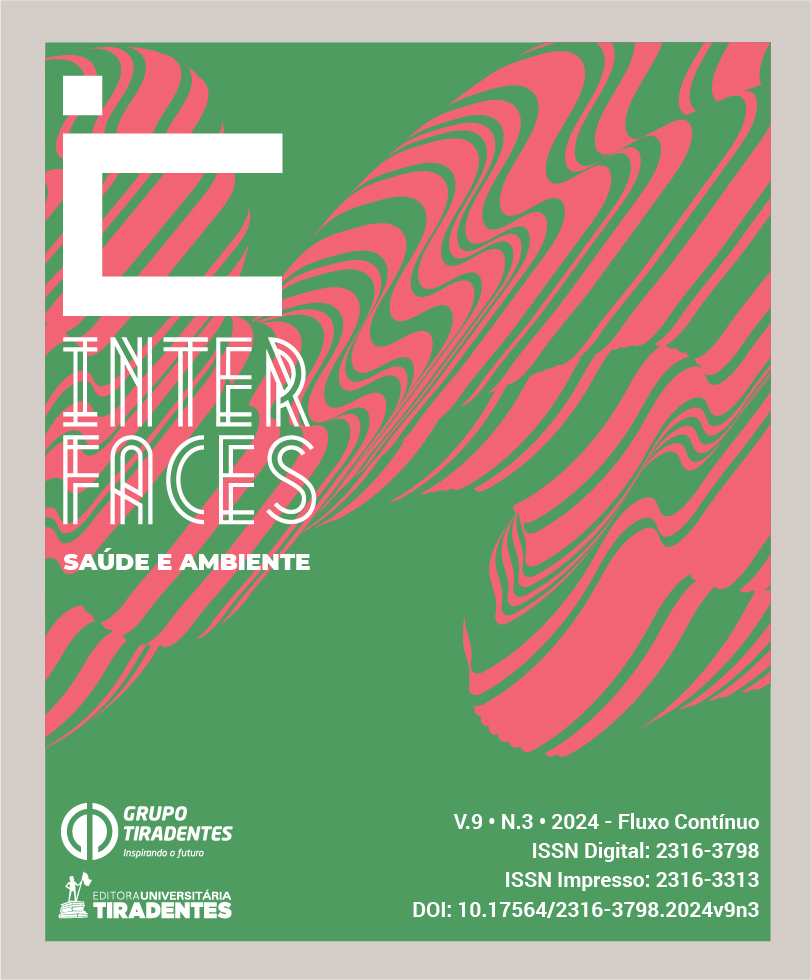PROFILE OF WOMEN IN THERAPEUTIC COMMUNITIES AND MULTIDIMENSIONAL IMPACTS OF PSYCHOACTIVE SUBSTANCE USE
DOI:
https://doi.org/10.17564/2316-3798.2024v9n3p124-137Published
Downloads
Downloads
Issue
Section
License
Copyright (c) 2024 Interfaces Científicas - Saúde e Ambiente

This work is licensed under a Creative Commons Attribution-NonCommercial 4.0 International License.
Autores que publicam nesta revista concordam com os seguintes termos:
a. Autores mantêm os direitos autorais e concedem à revista o direito de primeira publicação, com o trabalho simultaneamente licenciado sob a Licença Creative Commons Attribution que permite o compartilhamento do trabalho com reconhecimento da autoria e publicação inicial nesta revista.
b. Autores têm permissão e são estimulados a distribuir seu trabalho on-line (ex.: em repositórios institucionais ou na sua página pessoal), já que isso pode gerar aumento o impacto e a citação do trabalho publicado (Veja O Efeito do Acesso Livre).
Abstract
The aim of this study was to analyze the profile of women assisted in two female therapeutic communities in a municipality in the Southern region of Brazil, as well as to investigate the impacts of drug use on different areas of their lives. Methodologically, this is an exploratory and descriptive research with a quantitative approach. A questionnaire was administered to 26 women who were receiving assistance in these therapeutic communities. Regarding the participants' profile, the average age range was over 35 years, consisting of self-declared white, single women with completed high school education and an average monthly income lower than the minimum wage. An equal number of Catholic and Pentecostal Evangelical women were observed, followed by Protestants and those with no religion. As for the impacts of drug use in their lives, over 73% reported adversities with their children, over 70% in marital relationships, 80% in health, and almost 80% at work. The results of this study emphasize the importance of integrated and contextualized approaches in the treatment and recovery of women with chemical dependency. It is crucial to consider not only the biological and psychological aspects of drug use but also the social determinants of health, such as income, education, and social support. Additionally, recognizing the role of religion and religious involvement in these women's lives is relevant. It is hoped that this information can contribute to the improvement of care practices and the promotion of well-being for these women.




















